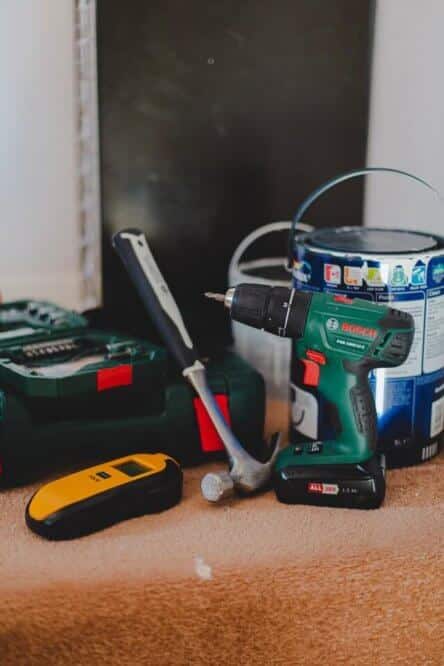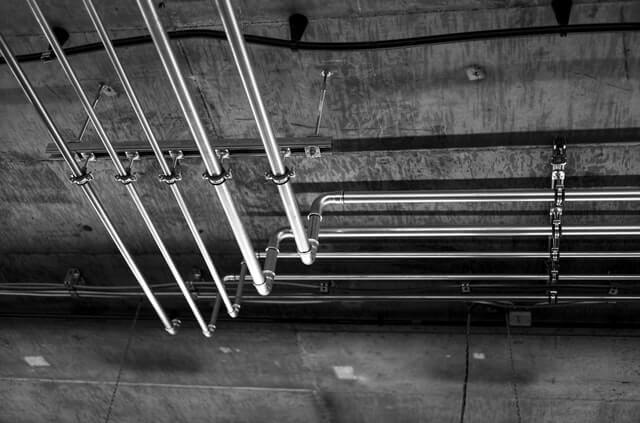Are there any common HVAC issues that plumbers can help resolve?
Embarking on a construction project is an exciting endeavor, full of possibilities and dreams taking shape.
Nonetheless, amidst the thrill, a lurking challenge can rip at even the most carefully planned projects: HVAC issues. The sheer number and complexity of potential HVAC problems that can occur during your building process are astounding.
As relevant construction professionals establish their visions into reality, they must navigate a maze of HVAC challenges, ensuring that comfort, efficiency, and air quality remain at the forefront of their construction efforts.
In this blog post, you’ll discover various HVAC issues and how plumbers can help resolve each concern.
What is a difference between plumber and HVAC?
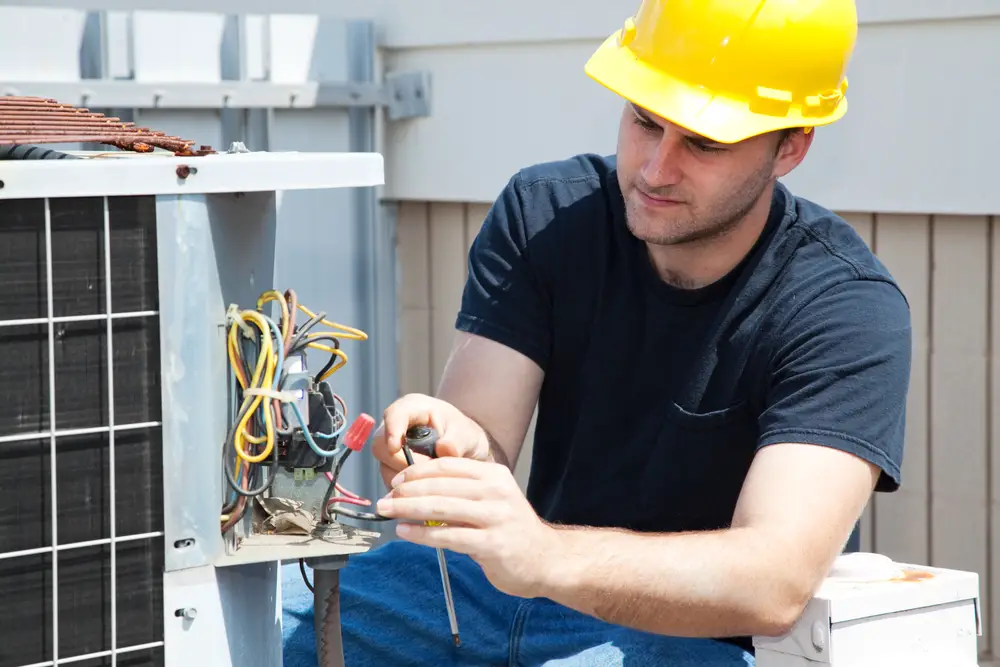
A plumber and an HVAC (Heating, Ventilation, and Air Conditioning) technician are both professionals who work with different systems and perform distinct tasks. Here are some key differences between the two:
Scope of Work: Plumbers primarily deal with systems related to water supply, drainage, and sewage. They install, repair, and maintain pipes, fixtures, and appliances such as toilets, sinks, showers, and water heaters.
On the other hand, HVAC technicians focus on heating, ventilation, and air conditioning systems.
They install, repair, and maintain equipment like furnaces, air conditioners, heat pumps, ventilation systems, and ductwork.
Specializations: While plumbers specialize in water systems, some HVAC technicians may specialize in specific aspects of HVAC, such as heating or air conditioning. They may have expertise in particular types of equipment or systems, like boilers or central air conditioning units.
Skill Sets: Plumbers require knowledge of plumbing codes, pipe materials, water pressure, and various types of fixtures. They work with tools such as wrenches, pipe cutters, soldering equipment, and drain augers.
HVAC technicians need expertise in electrical systems, refrigerants, airflow principles, and thermostat operation. They work with tools like multimeters, refrigerant gauges, vacuum pumps, and ductwork tools.
Work Environments: Plumbers can work in residential, commercial, and industrial settings. They may need to install plumbing systems in new constructions or repair existing ones.
HVAC technicians also work in residential, commercial, and industrial settings but primarily focus on heating and cooling systems. They install new HVAC systems, perform maintenance, and repair existing equipment.
Licensing and Certifications: Both plumbers and HVAC technicians often require licensing or certifications to work professionally.
The specific requirements vary by region, but they typically involve passing an exam and completing a certain number of practical hours. Licensing ensures that professionals have the necessary skills and knowledge to work safely and effectively.
While there may be some overlap between the two professions, they generally have distinct areas of expertise and focus. [1]
HVAC Problems You Can Prevent
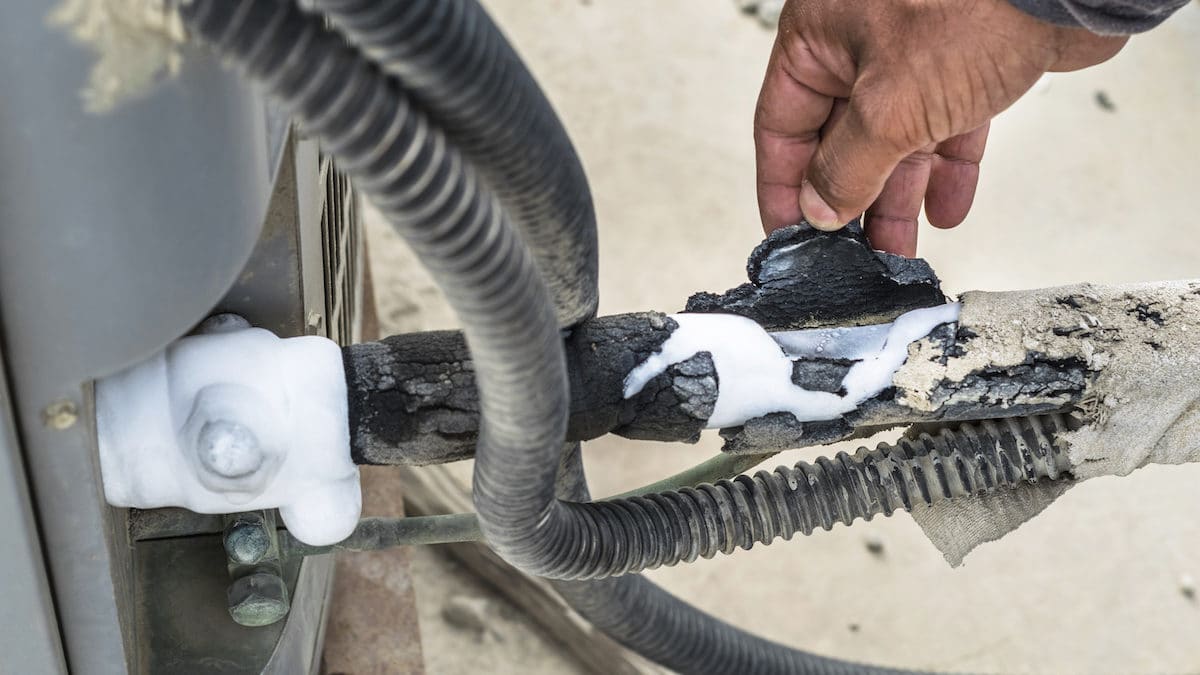
- Air filter problems: One of the most frequently occurring HVAC issues is dirty or clogged air filters. Over time, dust, debris, and allergens can penetrate and block your air filters, limiting airflow and decreasing system efficiency. It can also lead to reduced cooling or heating power, massive energy consumption, and poor indoor air quality. Regularly cleaning or replacing air filters is critical to sustaining optimal HVAC performance.
- Refrigerant leaks: HVAC systems rely on refrigerant to manage cooling or heating. However, leaks can arise in the refrigerant lines, coils, or connections. Low refrigerant levels can result in inadequate cooling or heating, increased energy usage, and compressor deterioration. HVAC technicians can find and repair the leaks, revitalize the system with the correct amount of refrigerant, and guarantee the proper operation of the HVAC unit.
- Thermostat issues: Faulty thermostats can cause temperature inconsistencies, improper system operation, and distress. Common concerns include incorrect temperature readings, passive controls, or malfunctioning sensors. HVAC technicians can diagnose and fix these issues by recalibrating or changing the thermostat, securing accurate temperature control and excellent performance.
- Faulty capacitors and motors: HVAC systems use capacitors and motors to activate fans and compressors. Unfortunately, these components can wear out or fail, resulting in system failures, diminished airflow, or complete system breakdown in the long run. HVAC technicians can determine and replace malfunctioning capacitors or motors, reviving the correct functionality and airflow of the facility.
- Ductwork problems: Problems with the HVAC ductwork can adversely affect the system’s performance. Common issues include leaks, loose connections, or poorly insulated ducts. These issues can cause energy losses, reduced airflow, and uneven temperature distribution throughout the building. HVAC technicians must inspect and seal ductwork, fix or change damaged sections, and enhance insulation to optimize system efficiency. Installing an HVAC and hood ventilation panel can also help grant easy access for your hired specialists and protect your ductwork from unwarranted access.
- Ignition or pilot control problems: Furnaces and boilers often encounter ignition or pilot control issues. It can result in a lack of heat generation or irregular heating. HVAC technicians can analyze and resolve problems with ignition systems, replace faulty components, and ensure safe and effective heating operation.
- Poor system maintenance: Overlooking routine HVAC system maintenance can lead to more severe issues. Lack of cleaning, lubrication, or component checkups can cause lessened system efficiency, hefty energy consumption, and more frequent breakdowns. Proper maintenance, like regular tune-ups, cleaning, and inspections, conducted by HVAC professionals, can aid in preventing and addressing potential issues, extending the facility’s lifespan and improving overall performance. [2]
While HVAC technicians are typically the primary experts for HVAC system maintenance and repairs, plumbers can also be crucial in resolving common HVAC problems.
Read Also: Sings of Water Damage Under Floor
How Plumbers May Help?
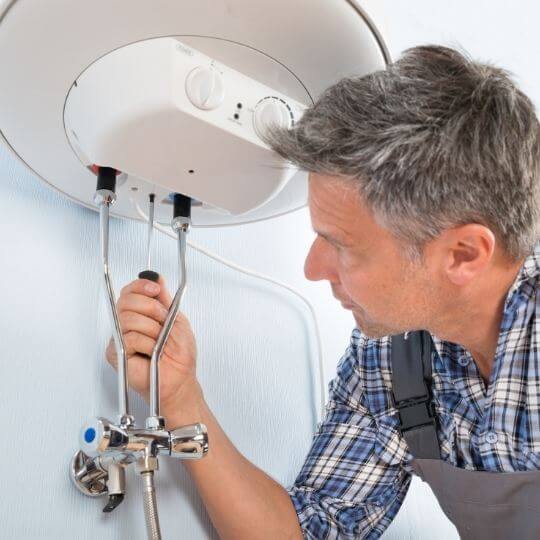
- Inspection and diagnosis: Plumbers can inspect HVAC systems and help identify problems like clogged air filters, drainage issues, or ductwork leaks. They can pinpoint the root cause of HVAC issues through thorough examination and diagnosis.
- Air filter maintenance: Plumbers can assist in HVAC maintenance by inspecting, cleaning, or replacing air filters. Obstructed or dirty filters can restrict airflow and reduce system efficiency. Plumbers can ensure that air filters are properly cleaned or replaced, helping to maintain optimal airflow and improve indoor air quality.
- Drainage issues: Plumbers can address condensate drainage problems in HVAC systems. HVAC units produce condensation, so they require appropriate draining to prevent water damage and mold growth. Plumbers can clear clogged drain lines, repair damaged drain pans, or install condensate pumps to remove excess moisture efficiently.
- Ductwork inspections: Plumbers can do routine checkups of HVAC ductwork for leaks, loose connections, or insulation problems. Leaky ducts can lead to energy losses and reduced airflow. Plumbers can seal ductwork, repair or change deteriorated sections, and improve insulation, guaranteeing excellent airflow and energy efficiency within the utility.
- Equipment installation: Plumbers can assist in installing HVAC equipment, such as water heaters or boilers, that often interconnect with the plumbing system. They can provide proper connections, venting, and safety measures, collaborating with HVAC technicians to make sure seamless integration between the plumbing and HVAC systems.
- Energy efficiency upgrades: Plumbers can provide recommendations for energy-efficient plumbing fixtures and systems that work with HVAC systems. For example, they can suggest low-flow faucets, efficient hot water recirculation systems, or water-saving appliances that can reduce the overall energy consumption and environmental impact of a building.
- Preventive maintenance: Plumbers can also execute frequent maintenance tasks on HVAC components connected to the plumbing system, including water-cooled air conditioners or hydronic heating utilities. Regular upkeeping effectively aids in preventing issues, expands the lifespan of equipment, and optimizes HVAC system performance.
Read Also: Plumbing vs HVAC
Plumbers’ vital role in resolving common HVAC issues
Addressing these common HVAC issues as soon as possible is essential to ensure superb system performance, energy efficiency, and building comfort.
Regular maintenance and timely repairs by qualified HVAC professionals are crucial in keeping HVAC systems running smoothly and minimizing disruptions.
Plumbers also play an essential role in resolving common HVAC issues in buildings.
From addressing airflow problems and refrigerant leaks to troubleshooting thermostat malfunctions and repairing ductwork, their expertise gives assurance that HVAC systems operate efficiently, supplying comfort and excellent indoor air quality for building occupants.

Michael Davis is a heating & plumbing expert who currently works as independent contractor in SC. He also writes for Plumbertip.
For almost 10 years he worked on various plumbing tasks across South Carolina.
